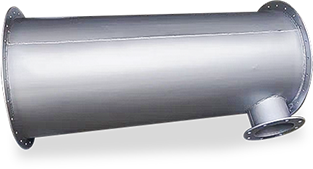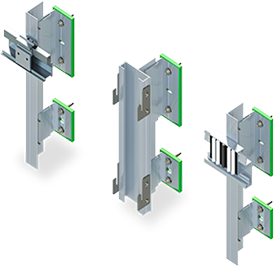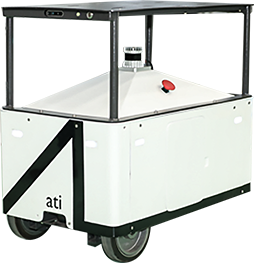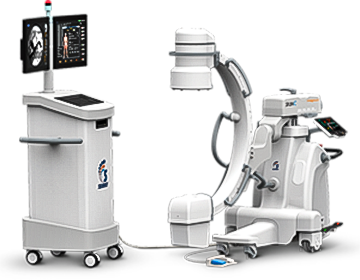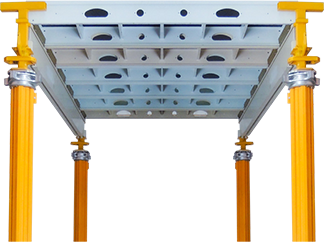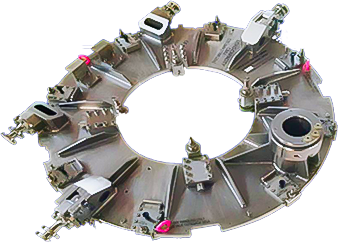
The best way to experience the future of medical device manufacturing is to witness precision CNC machining in action. CNC machining in medical device manufacturing is one of the biggest manufacturing avenues, serving the ever-growing need of medical devices, equipment, and other medical manufacturing needs while giving precision in microns, high performance, and manufacturing at scale at the same time.
For anyone interested in MedTech manufacturing, understanding the relevance and scope of CNC machining with respect to the medical manufacturing industry is crucial. This blog explores all these avenues while giving you a glimpse into the future of medical manufacturing.
#1 Micromachining for precision and customisation
Micromachining in medical manufacturing is the need of the hour, and with extremely small parts in use, traditional manufacturing processes alone do not fit the bill. Micromachining with high precision is required for numerous medical devices like:
- Microneedles
- Stents
- Pacemakers
- MRI scanners
- Sensors
- Ophthalmic devices
- any many others
CNC machining in medical device manufacturing offers one of the best setups that allow for producing multiple batches of these devices with high precision, which cannot be compared with other forms of manufacturing and results in a lot of wastage of materials and increased costs.
With modern 5 and 12-axis CNC machines, creating complex geometries becomes effortless with the help of computer codes.
#2 Manufacturing medical implants with CNC machining (The sweet spot between injection moulding and 3D printing)
Medical implants have become a part of standard medical procedures, and doctors need implants for knees, hips, birth control, dental, and many other areas.
With a fair degree of customisation, you cannot produce these with injection moulding or other processes, as they would make sense for large volumes. 3D printing, on the other hand, is best for prototyping and specific customisations.
CNC machining in medical device manufacturing, in these cases, becomes the perfect option that allows for specific customisation and high precision required for medical procedures.
#3 Tight tolerance for medical-grade manufacturing
The slightest variations in terms of measurements can cause huge risks and challenges for medical devices, equipment, or parts. Tight tolerances are necessary for medical manufacturing, which is made possible with medical CNC machining.
Parts produced with CNC machining mostly require minimal post-processing, and operators can automatically produce large volumes without compromising surface finish or other quality aspects.
#4 No limitations of fixed tooling
Traditional manufacturing processes involve creating moulds, creating samples, and then manufacturing in bulk. This need does not equate to the needs of medical manufacturing, which is all about making medical parts quickly and with specific customisations.
You cannot produce patient-specific parts in bulk or wait months for production. CNC machining in medical device manufacturing removes these challenges with quick and customised manufacturing with high precision.
#5 High speed of manufacturing with no volume restrictions
The COVID-19 situation has taught us that medical emergencies cannot be predicted, and demands for specific parts or equipment can skyrocket quickly. In cases of medical emergencies, the speed of production matters and CNC machining can help create medical parts in a matter of a few hours.
Once you have the CAD file of the part to be produced ready, volume is never a challenge as you just have to enter the volume details, and the machine will automatically produce the parts you need.
#6 Wide variety of materials
CNC machining in medical device manufacturing works with a wide variety of materials covering almost all of the needs for medical devices and parts. It covers almost all types of materials including but not limited to aluminum, brass, different types of steel, nylon, fiberglass, and plastics such as polypropylene.
This factor also increases the options for manufacturers while helping reduce the end cost.
#7 AI-driven software for high-precision manufacturing of prosthetics, implants and surgical equipment
As CNC machining is powered by software, AI-driven modern software are helping medical stakeholders produce customised prosthetics, implants and surgical equipment with high precision.
Supercharging CNC machining in medical device manufacturing with Karkhana.io
CNC machining has loads of benefits for manufacturing medical parts and devices, but making these benefits a reality is still a challenge for many medical companies and doctors. For specific and one-time needs, you cannot buy CNC machines and finding a CNC manufacturer is a big challenge. You need expert advice on the right manufacturing process to choose and would need to vet the manufacturer for past experience while ensuring the price is right for your specific case.
Karkhana.io has made this process seamless with their digital manufacturing platform that allows medical companies to access CNC manufacturing services, including CNC Turning and 3, 4, 5 Axis Machining (HMC/VMC capabilities) with a wide variety of materials (Aluminium, Stainless steel, copper, ABS, Nylon, P20 tool steel, and many others) and high precision tolerances.
Processes that you can avail of include CNC turning, CNC milling, Electrical discharge machining, and gear hobbing. You can also choose from a wide variety of surface finishing options.
After just uploading the CAD designs of the parts you want to be manufactured, you get access to instant quotations, DfM feedback via our expert engineers, end-to-end project management, sharing project files within your organisation, view your CAD files, regular QC, regular order updates, audits of suppliers, logistics, payments, and more.
Wish to have all that for your manufacturing? Start by registering on our digital platform.




